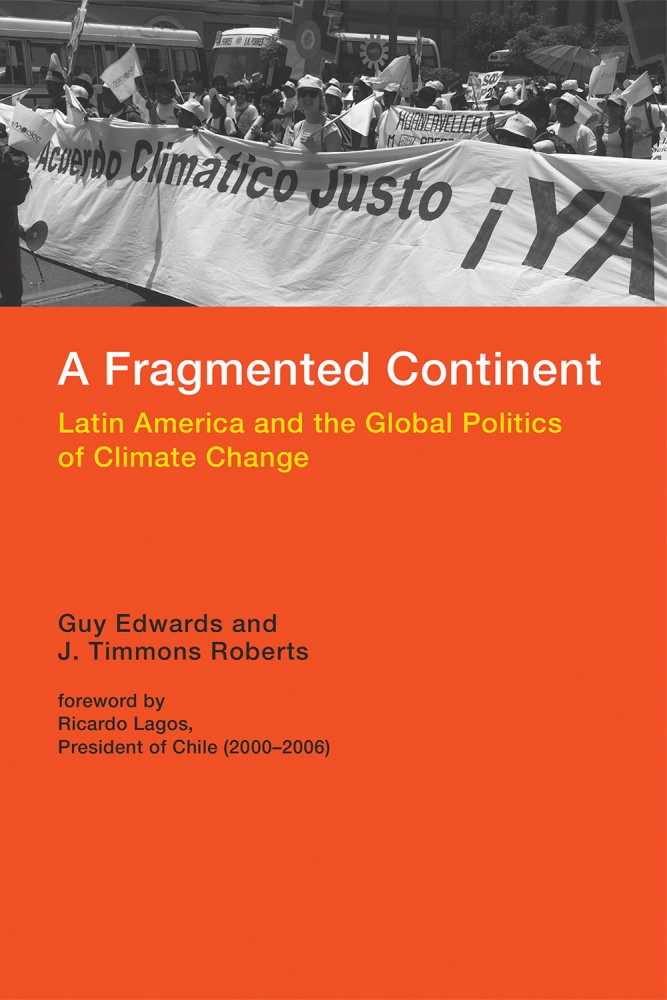 Researcher Guy Edwards and Institute Fellow J. Timmons Roberts are authors of the new book, A Fragmented Continent: Latin America and the Global Politics of Climate Change, out this month from MIT Press.
Researcher Guy Edwards and Institute Fellow J. Timmons Roberts are authors of the new book, A Fragmented Continent: Latin America and the Global Politics of Climate Change, out this month from MIT Press.
The book is timely, as in recent years Latin American countries have increased their influence at the United Nations climate change negotiations and offered potential solutions on coping with global warming. But, as the authors explore, in the face of competing priorities, sometimes these climate policies are jettisoned, undermined, or simply ignored.
A Fragmented Continent focuses on Latin America's three major blocs at the U.N. climate negotiations and how they attempt to balance climate action with building prosperity. Brazil has reduced its deforestation but continues its drive for economic growth and global recognition. A leftist group led by Venezuela, Bolivia, and Ecuador decries the injustice of climate change but is highly dependent on the export of fossil fuels. A new group, including Chile, Costa Rica, and Peru and supported by Mexico, offers sharp reductions in their carbon emissions in return for greater action by others; these countries now have to deliver on their promises. Weaving together issues of politics and economy, trade, foreign policy, civil society, and environmental protection, A Fragmented Continent offers a long-missing perspective on one of this century's greatest challenges and neglected regions.
It represents the first of its kind for a general audience on Latin America and climate change and provides important insights into how the region's countries are responding to global warming particularly relevant as we approach a new phrase of global climate governance with a likely agreement in Paris and its implications for Latin America.